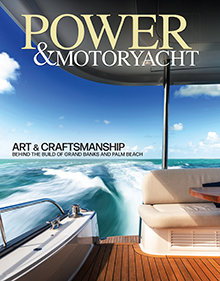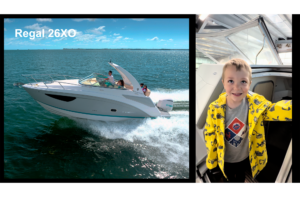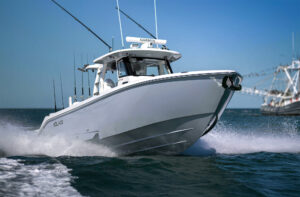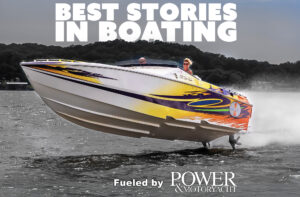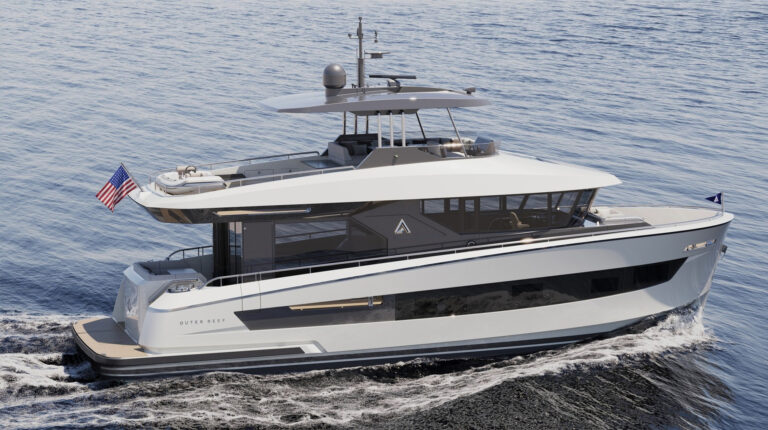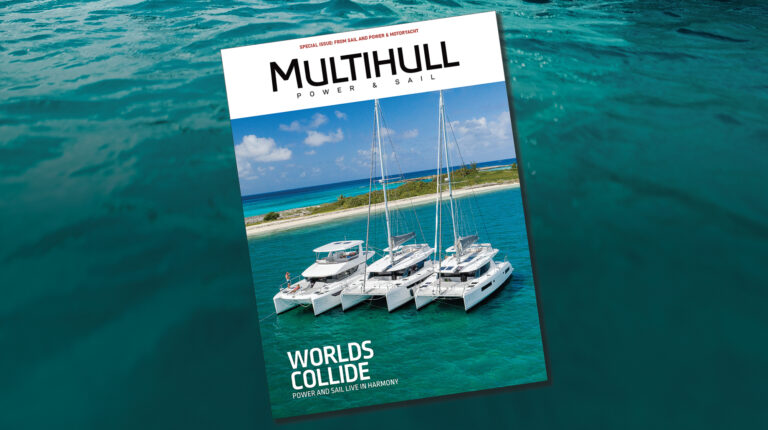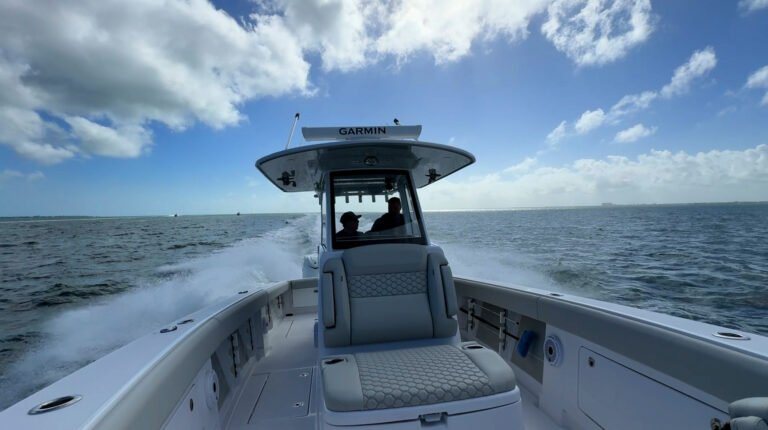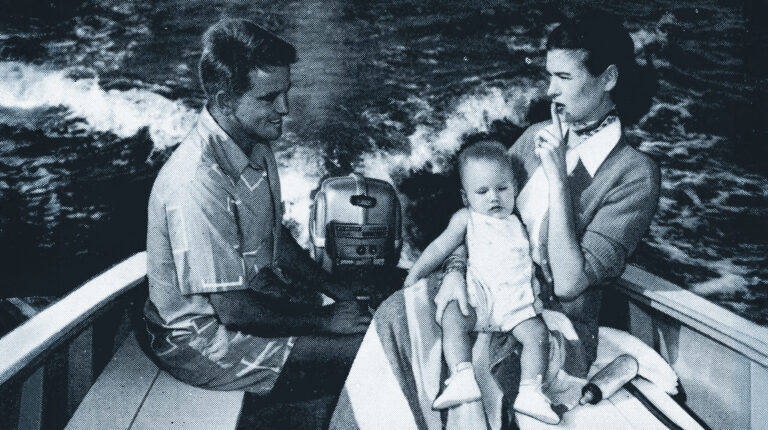Is it hard to build a winning offshore fishing team? Not really, say five high-spirited black women from North Carolina.

Last June, Gia Peebles stood on the balcony of her condo in Morehead City, North Carolina, and wondered what the heck was going on. There, down on the pier, were scores of women getting off boats, many cheering, many touting rather large fish. “It’s the Big Rock Blue Marlin Tournament,” her husband explained, adding that this was a day exclusively devoted to female anglers. Peebles studied the scene for a moment. She saw no women of color, an observation that prompted more wonderment. Since the event looked like fun, she eventually asked her husband, an avid fisherman, what it might take to start an all-female, black fishing team with prize-winning potential. Peebles, after all, is a competitive soul—during her youth, she became the first black woman to score a softball scholarship to California State University, Long Beach, then subsequently competed four times in the Women’s College World Series.
Her husband responded encouragingly—hiring a proper boat (as well as a captain and mate) was going to be necessary, of course, in addition to getting a fishing license. But beyond that, all Peebles needed were a few adventurous ladies with a will to win.

Peebles got on the phone, and within a week Ebony Anglers was up and running, with Peebles as team captain and Lesleigh Mausi, Tiana Davis, Bobbiette “The Brand” Palmer and Glenda Turner as team members. They had varying levels of experience. Peebles and her husband owned a boat and fished out of Morehead. Mausi had fished with Peebles occasionally, and Mausi’s father, who’d passed away a year before, had been a professional angler. Davis and Turner often fished the Neuse River, and Palmer had done some fishing as a child, albeit strictly inshore stuff.
A month later, the Ebony Anglers won their first big tournament—the Carteret Community College Foundation’s Spanish Mackerel & Dolphin extravaganza, with a whopping 48-pound kingfish that took first place in their division. Later, in October, the team’s second outing, the Atlantic Beach King Mackerel Fishing Tournament, was less successful, at least in part because conflicting schedules cut their participation to just one day during the three-week event.

Nevertheless, people took notice. Over the past few months, Ebony Anglers has appeared on the Drew Barrymore Show as well as other television programs, been interviewed on a SiriusXM radio show, enlivened the online realm with a website and a growing social media presence and, just last November, occupied a full page in the New York Times Sunday sports section. Recently, we had the good fortune to talk briefly with a couple of the anglers, Lesleigh Mausi and Tiana Davis, to get their take on offshore tournament fishing, its impact on their lives and what the team is planning for 2021.
Power & Motoryacht: Has fishing together intensified your friendships?
LESLEIGH: You know, before Ebony Anglers, we all knew one another. Gia and I had a friendship and Tiana and I had a friendship and then Gia and Bobbiette and Glenda shared a friendship and a work relationship. But once we got this band of ladies together and started to strategize and meet and plan our first tournament, there was an automatic synergy there. And as soon as we hit the water it intensified, probably because we were in an environment that was outside our comfort zone; our husbands were not with us, we were on a boat with a captain and a first mate whom we’d just met that day. So, there was a new level of trust and respect amongst us.
Power & Motoryacht: What about the athleticism involved in offshore tournament fishing?
TIANA: Well, let’s just say, as with any sport, there’s a mindset—a -mental stamina—as well as a physical stamina that’s called for. And working to balance both is something we work on offshore.
Power & Motoryacht: It’s basically a sporting event then?
TIANA: Yes, and we are all competitive. We are businesswomen,
entrepreneurs, and there’s a certain level of competitiveness that is required to be successful in any business. I own a charcuterie and catering company, for example, and I am also the mother of five as well as a wife. So, there’s a constant multi-tasking that’s going on in my daily life, as with the other ladies. We bring all the skills we’ve developed both in business and in our homes to these tournaments.

Power & Motoryacht: Offshore fishing is dominated by white males—has this presented any challenges for you?
TIANA: Quite frankly, we have gotten phenomenal support from everyone we have encountered and, I mean, people from all walks of life have cheered us on every step of the way. When we walk off a boat onto the dock with our fish there certainly are lots of stares—we like to make sure we’re always in our fishing uniforms which have these bright, beautiful colors. Sometimes, people try to figure out who we are and what we’re doing but when they see the fish, they see we’re there to compete. So really, I’d say we’ve enjoyed an overwhelming display of support from everyone we’ve encountered.
Power & Motoryacht: What are these programs on your website: Black Girls Fish and Black Boys Boat?
LESLEIGH: We felt from the very beginning that it was important for us to find ways to give back and we know that the outdoor space and outdoor sports are probably not as well known among young people who live in inner cities. I’m an educator and have been for over 25 years, primarily in schools that serve disadvantaged students, mostly students of color. And I’ve seen these students bring a lot of social ills to school, things like displacement, homelessness, depression, -hunger and anxiety. I also know how I feel when I’m out on the water. The air is different. The pace is different. There’s an ability to relax and decompress. I feel that these children need to understand that this sort of thing is possible for them. So, through these programs we want to teach young people that there’s an outdoor lifestyle in the offing, that there are survival skills they can acquire, like how to fish and how to navigate a boat, and that there are career opportunities for them on the water.
Power & Motoryacht: How will you implement these programs?
LESLEIGH: Because Ebony Anglers started in the midst of a pandemic, we have to be careful about safety. So, up to this point, we have not been able to do things on the scale we envision. But it’s important for us to start where we can—when it’s appropriate, we hope to take small groups out fishing or at least out on boats. And maybe we can speak to small groups in inner cities. And maybe put together small intimate fishing events too, even if it’s just inshore fishing.
Power & Motoryacht: What’s on tap for 2021?
TIANA: This coming June, Ebony Anglers will participate in the Big Rock Blue Marlin Tournament which is the very same tournament that inspired our team captain, Gia Peebles, to start the team. We are really excited about this and we are already gearing up for it and practicing. We have practice sessions where we go out to the Gulf Stream to familiarize ourselves with that environment—the Big Rock requires going out much further than we’ve gone out before. So, we’re doing a lot of preparation. Not only is participating in the tournament our goal but, you know, winning would be nice too.

